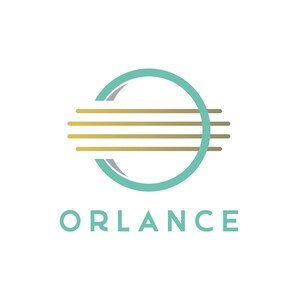SEATTLE, Nov. 28, 2023 /PRNewswire/ -- Orlance, Inc., a Seattle biotech developing next-generation DNA and RNA vaccines and therapeutics, has been awarded a National Institutes of Health (NIH) Phase I Small Business Innovation Research (SBIR) grant to use its needle-free MACH-1™ platform for creating a vaccine regimen that induces strong tumor specific immune responses and protection from melanoma.
The MACH-1 platform is a high-performance microparticle 'gene gun' technology that efficiently and uniquely delivers DNA or RNA vaccine-coated microparticles directly into cells in the epidermis, the uppermost layer of the skin. The epidermis is rich in immune-stimulating cells. MACH-1 delivery harnesses this environment and the natural machinery of its immune cells to deliver DNA and RNA vaccines or therapeutics; these encode proteins that trigger potent immunity including generation of antibodies to block an infection and activation of T cells that can either eliminate infected cells or kill tumor cells. Unlike current licensed mRNA vaccines, MACH-1-delivered vaccines are stable at room temperature, are painless and needle-free, and can trigger protective levels of immunity or efficacy with much lower doses.
While personalized cancer antigens have been identified from patients' tumors, effective methods to deliver these antigens and stimulate specific immune responses are still lacking. MACH-1 stable, painless, targeted, and lose-dose DNA and RNA vaccines show promise for addressing these shortcomings in melanoma treatment, based upon MACH-1 data in other relevant models. Researchers aim to enhance MACH-1's effectiveness by exploring combinations of genetic enhancers (adjuvants) and DNA or RNA formulations in comparison to other delivery methods in mice.
"Orlance is thrilled that our MACH-1 technology has broad applicability in both infectious disease and oncology. Our preclinical accomplishments in vaccines for viral infections have caught the eye and generated rapid enthusiasm among multiple cancer collaborators, including the National Cancer Institute (NCI) via this SBIR award," stated Kristyn Aalto, Orlance CEO. "Overall, we're seeing the field recognize the attributes of targeting the skin itself, rather than deeper tissues, as the ideal immunologic tissue and dosing site for DNA and RNA vaccines. We are confident that MACH-1's standalone ability to delivery specifically into the epidermis will continue to yield strong results across multiple disease targets. Melanoma is an exciting first crossover into cancer for us due both to unmet need and its perfect skin-targeting opportunity." This new SBIR grant, led by Orlance's Dr. Hannah Frizzell, PhD, will enable Orlance to complete proof of concept, formulation, and adjuvant incorporation necessary to advance lead candidates into later-stage preclinical development activities and IND readiness. If successful, program output will be a vaccine candidate shown to induce significantly slower tumor outgrowth in preclinical models that also incorporates all MACH-1 stability, dose-sparing, tissue targeting, and needle-free advantages.
This award brings Orlance's SBIR funding total to $12.9M to advance next-generation DNA and RNA vaccines and therapeutics. Orlance was founded as a University of Washington spin out company in 2016 to develop the MACH-1 platform based on technology invented by Deborah Fuller, PhD, Professor of Microbiology at the University of Washington School of Medicine. Orlance plans to initiate Phase 1 clinical trials for the company's lead infectious disease asset in 2025.
SOURCE Orlance

WANT YOUR COMPANY'S NEWS FEATURED ON PRNEWSWIRE.COM?
Newsrooms &
Influencers
Digital Media
Outlets
Journalists
Opted In


Share this article